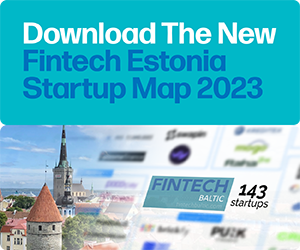
Iceland’s Established Banks Lead the Charge in Fintech Innovation
by Fintechnews Baltic April 4, 2024In Iceland, the financial landscape is witnessing a dynamic interplay between traditional lenders and innovative fintech companies. These partnerships are reshaping Iceland’s financial sector, fostering innovation and providing customers with more efficient and diverse services.
Over the past year, a flurry of domestic banks have announced new partnerships with fintech startups and tech providers to enhance financial services and improve customer experience. Kvika Banki has been among the most active lenders in payment innovation, unveiling a partnership with card issuing company Enfuce in June 2023 and another collaboration through its subsidiary Straumur with Dutch payment firm Adyen in January 2024.
The partnership with Enfuce focuses on modernizing Kvika Banki’s payment services, enhancing the bank’s Aur payment and buy now, pay later (BNPL) app, and introducing a novel Visa credit card. The objective of this strategic alliance is to leverage Enfuce’s issuer processor solutions to stimulate card usage and integrate with digital payment platforms like Apple Pay and Google Pay.
Similarly, Straumur’s partnership with Adyen aims to offer streamlined and efficient payment solutions to both merchants and consumers, and improve payment processing. The collaboration will see Adyen serve as the card acquiring bank for Straumur’s operations, enabling a unified commerce function and enhancing customer experiences across various channels.
Straumur is a subsidiary of Kvika Banki, specializing in local payment processing in Iceland. The company handles about 25% of the country’s payments and its infrastructure supports in-person payments, e-commerce, and mobile applications, catering to over 1700 merchants.
These deals add on to Kvika Banki’s recent fintech efforts these past years. These initiatives have primarily focused on investing in infrastructure upgrades, building up a portfolio of specialized digital solutions, and engaging in strategic mergers and acquisitions (M&A) to further its digital capabilities.
In 2021, Kvika Banki acquired Netgiro, a BNPL payment system used in stores and online, and Aur, another BNPL provider. That same year, the bank made its biggest merger to date, purchasing digital insurance player TM for ISK 34.9 billion (US$255 million).
In addition to Kvika Banki, other Icelandic banks like Landsbankinn, Islandsbanki, and Arion Bank have also embraced fintech. Landsbankinn, the largest bank in the country, opened a sandbox in 2021 to allow fintech companies and other providers to develop fintech solutions that link to the bank’s systems, enabling it to provide its customers with a broader range of services.
Continuing its commitment to open banking, Landsbankinn announced in November 2023 a partnership with software company Meniga to introduce payment initiation and aggregation services. With these services, Landsbankinn customers will be able to initiate fund transfers to other Icelandic banks directly within the Landsbankinn app, eliminating the need to use multiple banking applications. Additionally, they will get to access a consolidated view of their accounts across various banks in Iceland, simplifying financial management.
Arion Bank is another prominent Icelandic bank that has strategically partnered with and acquired fintech companies to enhance its services and stay at the forefront of innovation. The lender has worked with tech providers like Lucinity and Datactics on regtech and data management capabilities. It has also invested in fintech companies such as Leiguskjol, which sells guarantees for renters and various other services for both renters and landlords. In 2015, Arion Bank acquired Iceland’s fourth-largest retail insurer, Vordur, which has been fully integrated into the bank’s headquarters and banking app as part of its full bancassurance model.
Arion Bank’s CEO Benedikt Gislason told The Banker in December 2022 that the bank planned to continue to invest in fintech startups in Iceland that offer the best solutions for its customers and that can scale its solutions into other Nordic markets.

Benedikt Gislason
“What amazes me is to see what these companies can achieve with limited funding. They are agile and have no legacy,” Gislason said.
“It is inspiring and a reminder to continue to invest in our infrastructure to achieve better services at lower costs.”
Similarly, Islandsbanki has been working with fintech companies to improve its services and modernize its systems.
“We’ve invested heavily in our infrastructure in the past three to five years, to make sure we are very competitive — especially in payments — making loans more accessible, and improving our app and online banking,” Jon Gudni Omarsson, CFO at Islandsbanki, told The Banker.
Islandsbanki is also investing in technologies such as robotics to improve efficiencies and cut costs.
“At the same time, we are a universal bank providing a large number of products, which entails higher costs due to more regulatory scrutiny. A question we often ask ourselves is: can we be everything to everybody?” Omarsson said, adding that the bank had reduced its number of branches in recent years and now had the most efficient branch network in Iceland.
Featured image credit: edited from freepik






